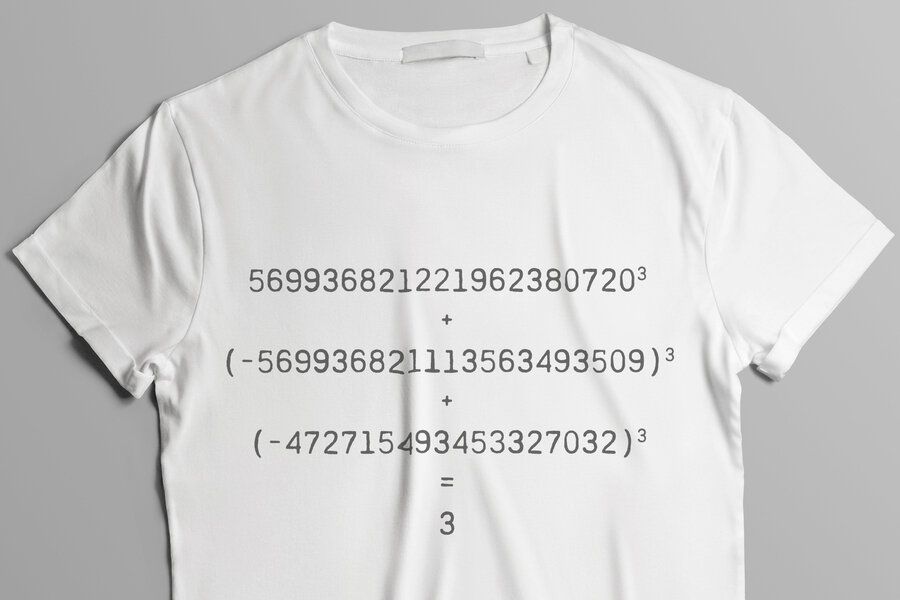What do you do after solving the answer to life, the universe, and everything? If you’re mathematicians Drew Sutherland and Andy Booker, you go for the harder problem.
In 2019, Booker, at the University of Bristol, and Sutherland, principal research scientist at MIT, were the first to find the answer to 42. The number has pop culture significance as the fictional answer to “the ultimate question of life, the universe, and everything,” as Douglas Adams famously penned in his novel “The Hitchhiker’s Guide to the Galaxy.” The question that begets 42, at least in the novel, is frustratingly, hilariously unknown.
In mathematics, entirely by coincidence, there exists a polynomial equation for which the answer, 42, had similarly eluded mathematicians for decades. The equation x3+y3+z3=k is known as the sum of cubes problem. While seemingly straightforward, the equation becomes exponentially difficult to solve when framed as a “Diophantine equation”—a problem that stipulates that, for any value of k, the values for x, y, and z must each be whole numbers.
